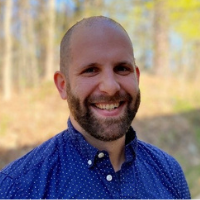
Speaker

Sponsor

This episode is brought to you by 10x Genomics, which builds solutions for interrogating biological systems at a resolution and scale that matches the complexity of biology. Their rapidly expanding suite of products, which includes instruments, consumables, and software, enables fundamental discoveries across multiple research areas, including cancer, immunology, and neuroscience.
The Scientist c/o LabX Media Group
1000 N West Street, Suite 1200, Wilmington, Delaware, United States, 19801
Toll Free: 888.788.0328 | Phone: 705.528.6888
Email: privacy@the-scientist.com
© 1986-2022 The Scientist
The Scientist needs the contact information you provide to us to contact you about our products and services. You may unsubscribe from these communications at any time. For information on how to unsubscribe, as well as our privacy practices and commitment to protecting your privacy, check out our Privacy Policy.